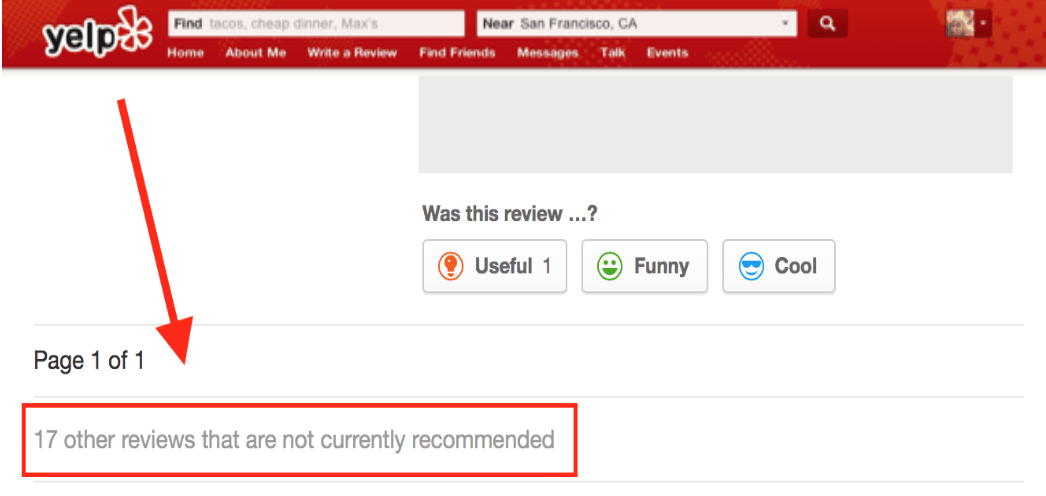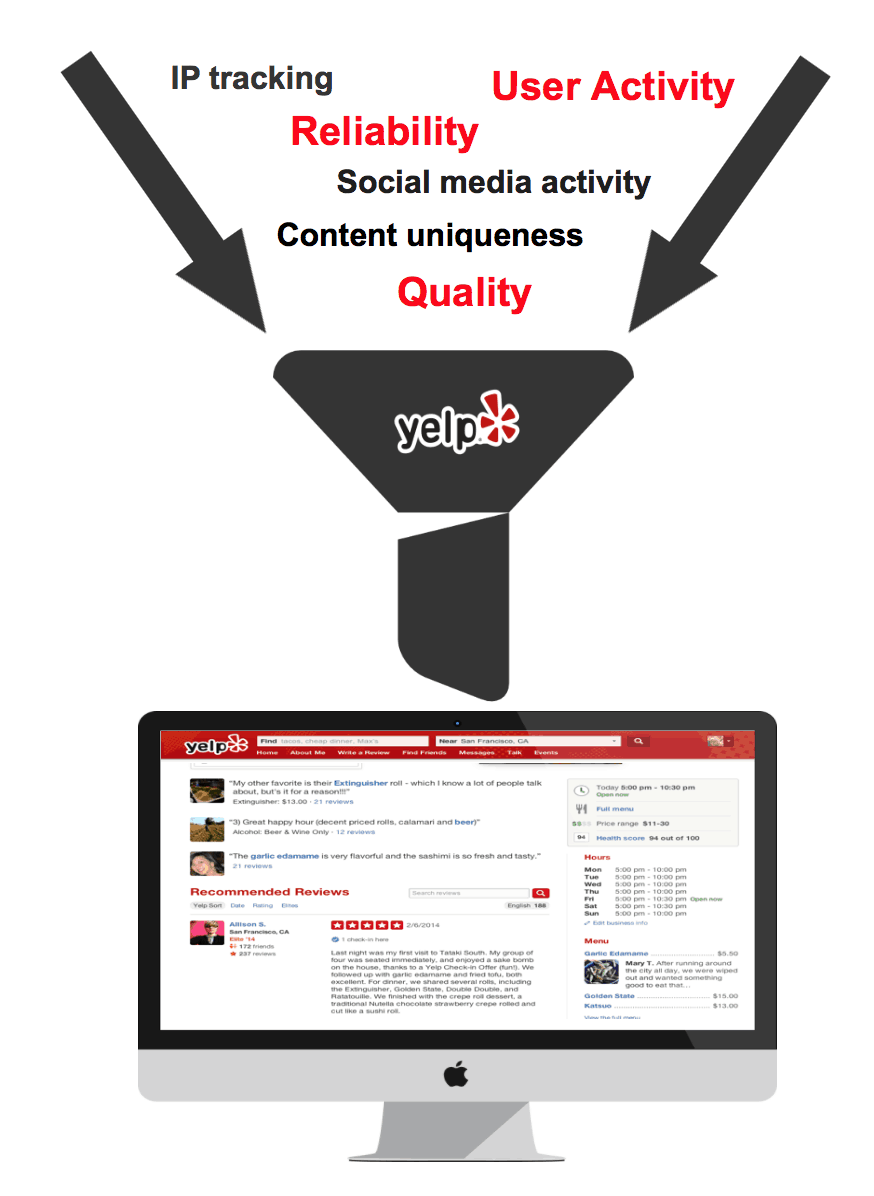How Yelp Filters Reviews
Reviews have become an essential part of the process of finding the right kind of business when someone is looking for specific products and services. There are websites like Yelp that have created a complex and immense database of user reviews that are meant to help potential customers with feedback in regards to the kind of services they can expect. Yelp is one of the biggest platforms for this purpose, but it seems their criteria for the order and distribution of their user reviews is a bit more complicated than it seems. So let’s dive in how Yelp filters reviews on their website.
The main frustration for business owners is that they are only seeing negative reviews as the first
ones to show up when someone visits the page. Their good reviews are pushed down to a “not recommended” section, which causes them to be hard to find. 
Even though it doesn’t impact the Yelp score, it can be very frustrating if potential clients see negative reviews at first sight.
Yelp’s criteria for filtering reviews
To find out how Yelp filters reviews, it is essential to analyze the patterns. Let’s see what Yelp has to say about their filtering system.
Everyone who has taken the time to research the Yelp filter for themselves has come up with the following observations:
Social media activity and exposure
Social media is a crucial factor for a reviewer to be taken seriously. If the reviewer is hiding their Yelp activity on Facebook this might be considered an account that is massively writing reviews just to earn money.
The uniqueness of the content
Fake reviewers often use templates to create their reviews and get more work done, while legitimate reviews are not going to look similar. The Yelp system seems to filter reviews and bumps them up or down based on how original their structure looks. Natural content that looks genuine seems to get the first spots in most of the search results.
IP tracking
It seems that the Yelp system bumps reviews based on location. Meaning that anyone that logs in from the same location and posts negative reviews for a bunch of competitors is going to trigger an alarm. This causes the reviews to be flagged or to have a low ranking in the search results for a business.
The combination of factors
The Yelp filter evaluates reviews based on Quality, Reliability and User Activity. These factors hold the same amount of weight when the system decides which reviews to show first and which ones to keep hidden.
None of this is etched in stone, and there might be some variables that the analysis is missing. The truth is that only Yelp knows how their system works and how effective their programming has been to ensure a fair decision based on all of the factors that we mentioned earlier. The best way to ensure a fair outcome is to keep these factors in mind when you analyze the kind of reviews your business is getting.
How to fight Yelp Defamation
If you are dealing with false and defaming reviews on Yelp, you have four main options in fighting Yelp defamation and false reviews.
- File a defamation lawsuit.
- Pay Yelp’s exorbitant advertising fees
- Implement the DIY tricks published on defamation911.org
- Pay professionals to do remove or suppress the reviews in Google
You can find more information on these options here.
If you want to take matters in own hand there are other ways to deal with the review directly.
 Page1.me
Page1.me